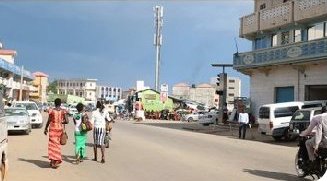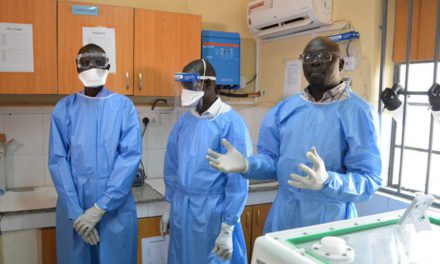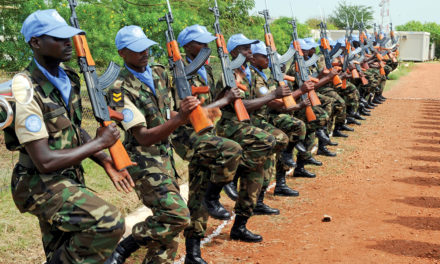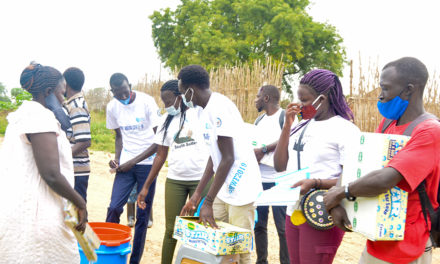
#WorldRadioDay: Journalists tasked to report about peace implementation, Covid-19

“The little that’s being implemented is because it’s being reported and as radio criticizes the slow implementation of this project [peace], it’s actually because it’s being aired out. That’s why they are implementing the little that they have done.”
As people across the world mark World Radio Day today, some people in Juba are urging broadcast journalists in South Sudan to keep reporting on the peace implementation process.
The theme for this year is New World, New Radio and has three subthemes; evolution, innovation and connection.
Juba residents commended radio for its role in connecting them to vital information about the implementation of the revitalized peace Agreement on the Resolution of Conflict in South Sudan (R-ARCSS) and the corona virus among other issues.
Christina Nyalel, a student at the University of Juba said she has learned a lot about the revitalized peace agreement and as well as its implementation. Nyalel stated radio broadcasts on the status of the implementation of the deal have put pressure on the parties to the deal to continue to implement it.
She urges radio journalists to continue to focus on the peace process adding that it is the only way to ensure the country’s leaders work to restore peace and stability.
“The little that’s being implemented is because it’s being reported and as radio criticizes the slow implementation of this project [peace], it’s actually because it’s being aired out. That’s why they are implementing the little that they have done.” Nyalel said.
“So, radio should continue because if they don’t then the slow motion will still continue and it will become worse.” She adds
Peter Khan, one of the IDPs sheltering in a Protection of Civilians Sites in Juba, says the World Radio Day is about being glued to the radio with the hope of hearing good news about South Sudan’s peace process.
“The first important thing that makes me tune to the radio is peace. It’s the best thing that can happen to everyone in South Sudan. If it succeeds, well and good but if it fails that’s going to be a problem. We just want peace so that everything becomes fine and people will understand each other and live peacefully.” Khan said.
Tabitha Moni, a resident of Juba said radio has given people in her community the opportunity to discuss and contribute ideas to topics that affect them.
“For example, if there’s a discussion which is going on in regards to peace, there’s always that hour which is given to people to give in their views on what they think about the topic which is being discussed, let’s say if it’s the implementation of the peace agreement, what do the community members think about? So, it helps in collecting the ideas of the community to be put into action.”Moni said.
She reiterated that psychosocial support programs aired on some radio stations across the country have helped citizens heal from trauma.
“We have had a lot of conflict in the country [and] also the coronavirus coming in, there’re so many people who are traumatized because of all these events that are happening. So, the radios do help in informing the people that despite all the fact that these things are happening, there’s still a bright future coming.”Moni explained.
She said radio creates awareness to, especially people in the grassroots who may be ignorant about the coronavirus and its prevention measures.
Songa David, a resident of Nyakuron, a suburb in Juba, says in a country like South Sudan where the majority don’t have access to other forms of media like television and newspapers, radio becomes his only source of reliable information.
“As such we solemnly rely on the radio. So, we always tune to the radio to get information. We also tune to radio to give in our views and our ideas on what is happening in our society.” David said.
“Especially during these times of the coronavirus, we always tune to the radio to get information about the pandemic; how it’s going [and] how we are supposed to take care of ourselves.” He added.
David said radio has also enabled children to learn through interactive radio instruction lessons after the government shut down schools due to the Covid-19 pandemic.
Malou Riek, another resident of the POCs said to him listening to radio is more than just getting information. He says it’s about taking the reliable information and disseminating it to others who may have missed it.
“When you have access to radio, you go in a meeting place where people are conversing, you go and tell what you have heard yesterday to others and then those people, the beneficiaries, will be happy about what is going to take place tomorrow when people are eager about the peace or about health, about the coronavirus or about whatsoever it is.”
World Radio Day, which was decided by the United Nations Educational, Scientific and Cultural Organization or UNESCO on November 3rd 2011, is marked all over the world on February 13.
The day aims at promoting the medium and encouraging people to use it. In addition, the day is celebrated to raise awareness among the public and the media of the importance of radio as well as to encourage decision-makers to establish and provide access to information through radio




















Recent Comments